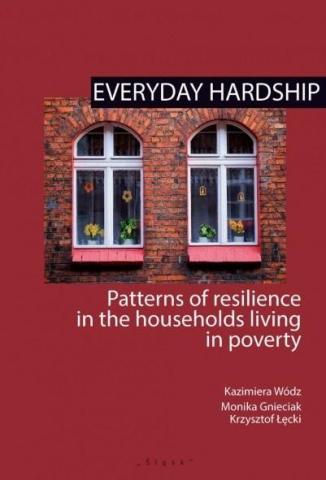
-10%
€ 6,60
Opis
Patterns of resilience in the households living in poverty
The three separate research projects selected for the book fall into place and the well-thought-out whole features: (a) coherence of the theoretical perspective, which is a combination of classical anthropological concepts and the traditions of sociological research over urban collectivities, (b) continuity in research interests focused on everyday and widespread impacts of the economic restructuring, the effects of which came to be suffered by the next generation of Upper Silesia's population, (c) as a result of which the conducted explorations orbit around the processes of pauperization of the population (here, admittedly, of whole estates) traditionally connected with heavy industry, (d) of which the researchers seem to be most interested in is how the economic transformation has led to a comprehensive reorganization of the cultural foundations on which the existence of native Silesian communities was based. Add to that the adopted (e) methodology, whose invariable link with the qualitative procedures additionally enhance the sense of continuity, which makes various research undertakings seen from the time perspective fit into one picture, description of changes in the social and cultural identity of (post)mining collectivities.
(From the review of Professor Krzysztof Frysztacki)
This book has a special character as it has been intended to be a summa of all the studies that have been carried out throughout the years at the Institute of Sociology, and in particular, the Department of Research on Contemporary Culture and the Social Work School, by a team of researchers as well as researchers under the supervision of one of the authors of the present publication, Kazimiera Wódz.
(From the Introduction)
The three separate research projects selected for the book fall into place and the well-thought-out whole features: (a) coherence of the theoretical perspective, which is a combination of classical anthropological concepts and the traditions of sociological research over urban collectivities, (b) continuity in research interests focused on everyday and widespread impacts of the economic restructuring, the effects of which came to be suffered by the next generation of Upper Silesia's population, (c) as a result of which the conducted explorations orbit around the processes of pauperization of the population (here, admittedly, of whole estates) traditionally connected with heavy industry, (d) of which the researchers seem to be most interested in is how the economic transformation has led to a comprehensive reorganization of the cultural foundations on which the existence of native Silesian communities was based. Add to that the adopted (e) methodology, whose invariable link with the qualitative procedures additionally enhance the sense of continuity, which makes various research undertakings seen from the time perspective fit into one picture, description of changes in the social and cultural identity of (post)mining collectivities.
(From the review of Professor Krzysztof Frysztacki)
This book has a special character as it has been intended to be a summa of all the studies that have been carried out throughout the years at the Institute of Sociology, and in particular, the Department of Research on Contemporary Culture and the Social Work School, by a team of researchers as well as researchers under the supervision of one of the authors of the present publication, Kazimiera Wódz.
(From the Introduction)
Wydanie
Rok wydania: 2020
Opis wydania
Strony: 366, Format: 235x160 mm
Wydawnictwo
Kategoria